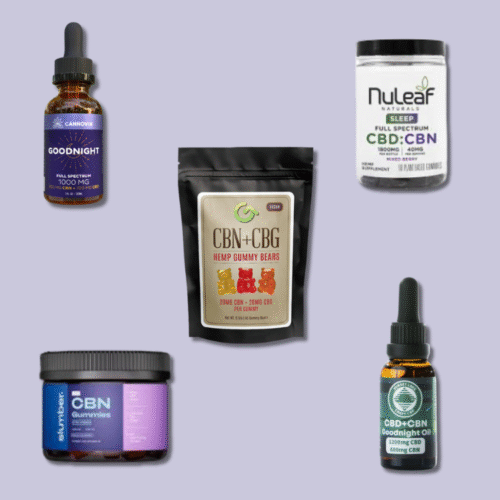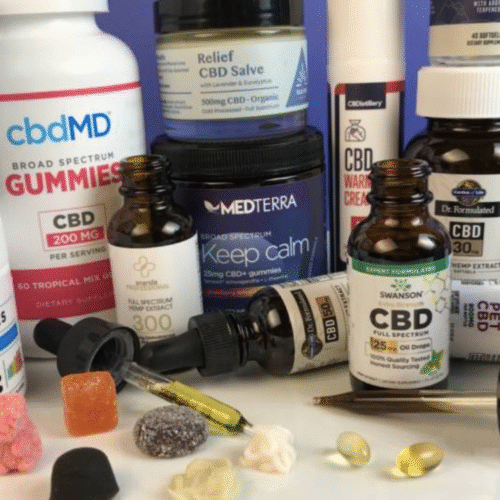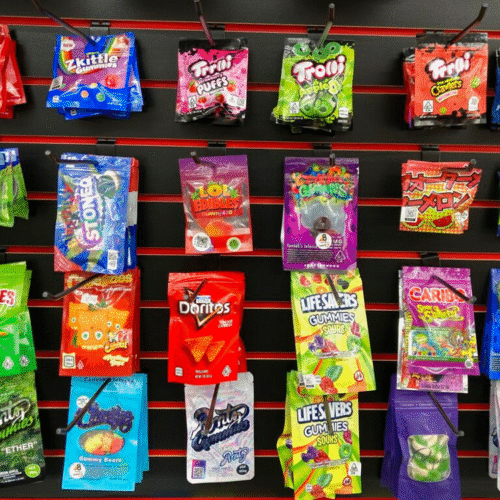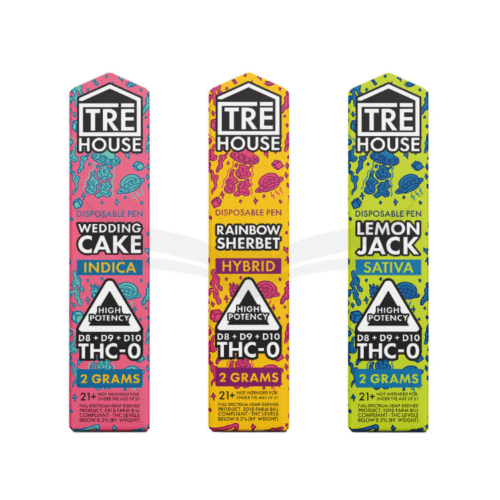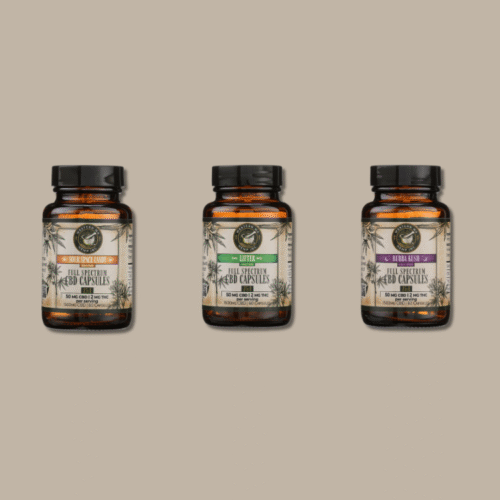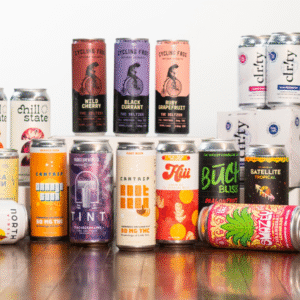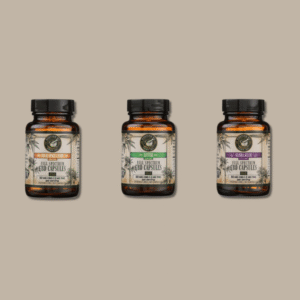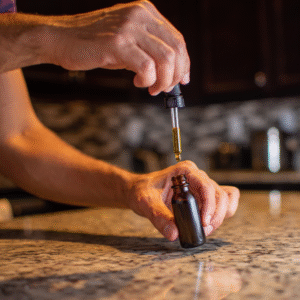Most Hemp Products Aren’t Really Hemp
Walk into any wellness store, scroll through your feed, or browse a convenience shelf, and you’ll see dozens of “hemp” products: CBD oils, gummies, capsules, vapes, drinks. The problem? Most of them aren’t really hemp at all.
That might sound strange, but it explains a lot—especially why so many people say hemp doesn’t work. If your experience with hemp has been disappointing, it’s probably because what you tried wasn’t actually true to the plant.
Let’s break down what’s really going on.
Most CBD Products Are Just That—CBD
Even when labeled “full spectrum” or “broad spectrum,” most CBD products on the market are extremely refined. They’re made from low-grade hemp biomass and processed so heavily that nearly all of the plant’s natural compounds—like terpenes, flavonoids, and minor cannabinoids—get stripped away. Learn more about how hemp extract is made.
What’s left?
Mostly just CBD and maybe a trace amount of THC.
That’s not hemp. Hemp is a complex plant with hundreds of active compounds that work together to produce real effects. When you distill it down to one or two ingredients, you lose the magic—and the benefits.
So when someone tries one of these products and says, “CBD didn’t work for me,” the truth is: they probably never experienced real hemp to begin with.
Isolate-Based Products Are Reassembled and Incomplete
To get around the loss of natural plant compounds, some brands try to rebuild hemp in a lab. They’ll combine CBD with isolated cannabinoids like CBN or CBG then market it for effects like “sleep,” “calm,” or “focus.”
But the plant doesn’t work that way.
The real benefits of hemp come from the entourage effect—the synergy between all its naturally occurring compounds. Isolated cannabinoids, taken alone or in forced combinations, can’t recreate that. In fact, some of these compounds aren’t even extracted from the plant. They’re converted in labs using chemical processes—often turning CBD into CBN or THC using solvents or acids you wouldn’t want near your body.
Worse yet, many of these isolates haven’t been well studied. So not only do they lack proof of benefit—they may come with unknown side effects, no matter how “pure” and “consistent” they are.
Buy Marijuana, Not THCA & “Hemp-Derived THC”
Here’s a quick truth bomb: Hemp does not naturally produce high amounts of THC or THCA.
So when you see “THCA flower” being sold as hemp—it’s not. It’s just marijuana under a different label. Same goes for potent “hemp-derived” THC products like gummies or drinks. Hemp doesn’t contain enough THC to make those products naturally or efficiently.
Instead, most “hemp-derived” THC products are made by chemically converting CBD into THC using solvents and reagents in a lab. That’s not hemp. That’s synthetic THC masquerading as a legal loophole.
If you’re looking for real THC, you’re better off buying regulated marijuana. If you’re looking for real hemp, these products are nothing more than a distraction—and a risk.
Synthetic Cannabinoids Aren’t Even From the Plant
And then there’s the worst of all: synthetic cannabinoids.
These compounds—like HHC, THCP, Delta-10, and others—aren’t found in hemp or marijuana. They’re made entirely in labs, often with zero transparency and no testing. Their only purpose is to get people high while sidestepping legal regulations.
There is no therapeutic value in these products. Just unpredictable effects, questionable safety, and an even more questionable industry pushing them.
If your goal is wellness, recovery, balance, or support—these synthetic compounds are the last thing you want in your body.
So What Is Real Hemp, Then?
Real hemp is simple. It’s the plant—rich in cannabinoids, terpenes, flavonoids, and other beneficial compounds that nature designed to work together.
At Western MA Hemp, we preserve that full spectrum by using:
- Organically grown, strain-specific flower
- Gentle CO₂ extraction with zero refinement
- No chemical conversions, no flavorings, no additives
- Just pure, natural hemp—true to the plant
The result? A product that actually feels like something—because it actually is something.
If It Doesn’t Work, It Wasn’t Hemp
If you’ve tried CBD and didn’t feel anything, we’re not surprised.
You probably weren’t using hemp. You were using a product that was labeled hemp but stripped of everything that makes the plant powerful.
Real hemp works. It’s been used for thousands of years for a reason. But it only works when you respect the plant—and sadly, most of today’s products don’t.
So before you give up on hemp entirely, ask yourself:
Was that really hemp I tried—or just a marketing trick?
Frequently Asked Questions
Why do so many CBD products not work?
Because most of them aren’t true to the plant. Many products labeled as CBD—especially “broad spectrum” or even “full spectrum”—are made from highly refined hemp biomass that’s been stripped of its natural compounds. What’s left is mostly CBD alone, which lacks the synergy of the full plant and often leads to disappointing results.
What’s the difference between full spectrum, broad spectrum, and isolate?
- Full spectrum is supposed to include all naturally occurring compounds in hemp, including a small amount of THC.
- Broad spectrum includes a range of compounds but no THC.
- Isolate is pure CBD with everything else removed.
The issue is that most products marketed this way don’t live up to the label. Many “full spectrum” products barely contain any minor cannabinoids or terpenes at all.
What are isolated cannabinoids and are they effective?
Isolated cannabinoids like CBN and CBG are individual compounds separated from the rest of the plant. While they can have value, using them alone (or combining them in a lab) doesn’t replicate the effect of the whole plant. The entourage effect—where multiple compounds work together—is key to hemp’s effectiveness, and isolates simply can’t deliver that on their own.
Is THCA flower really hemp?
No. If a flower is high in THCA, it is genetically and chemically marijuana—even if it’s being sold under the label of hemp. Hemp does not naturally produce large amounts of THCA, and labeling it as such is just a way to bypass marijuana laws.
Are hemp-derived THC products natural?
Not really. These products—like THC gummies or vapes labeled “hemp-derived”—are typically made by converting CBD into THC in a lab using chemical solvents. They are not naturally occurring in the hemp plant and don’t reflect what real hemp has to offer. If you want THC, you’re better off buying legal marijuana. If you want hemp, avoid lab-created conversions.
What are synthetic cannabinoids, and are they safe?
Synthetic cannabinoids like HHC, THCP, and Delta-10 are lab-made compounds that do not occur naturally in hemp or cannabis. They’re produced solely to create legal workarounds for getting high—and they come with no proven therapeutic benefit and unknown health risks. They’re not hemp, and they’re not safe.
How can I tell if a hemp product is truly “full spectrum”?
The best way is to check the third-party lab results (COA). A true full spectrum product should list a wide range of cannabinoids (not just CBD and THC) and show the presence of natural terpenes. If the test only lists CBD and trace THC—or no terpenes at all—it’s not a full-spectrum product, no matter what the label says.
Why does the source of hemp matter?
Most companies use leftover plant material (biomass) that’s been machine harvested and degraded before extraction. At Western MA Hemp, we use organically grown, strain-specific flower, hand-harvested and carefully extracted to preserve the plant’s natural spectrum. That’s the difference between something that works and something that doesn’t.
What should I avoid when shopping for hemp products?
Avoid products with:
- No lab testing
- Added synthetic cannabinoids
- Unclear ingredient sourcing
- Isolated cannabinoids pretending to be “effect-based”
- Overly refined oils with no terpene content
- Claims like “hemp-derived THC” or “legal high”
What makes Western MA Hemp different?
We stay true to the plant. That means no overprocessing, no chemical conversions, and no gimmicks. Just full-spectrum hemp products made from whole flower, extracted with care, and preserved in their most natural and effective form. You’ll feel the difference—because it actually is hemp.

